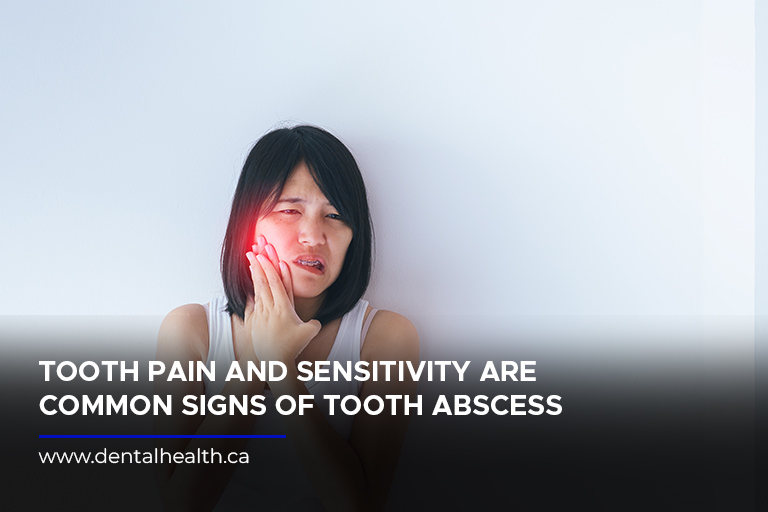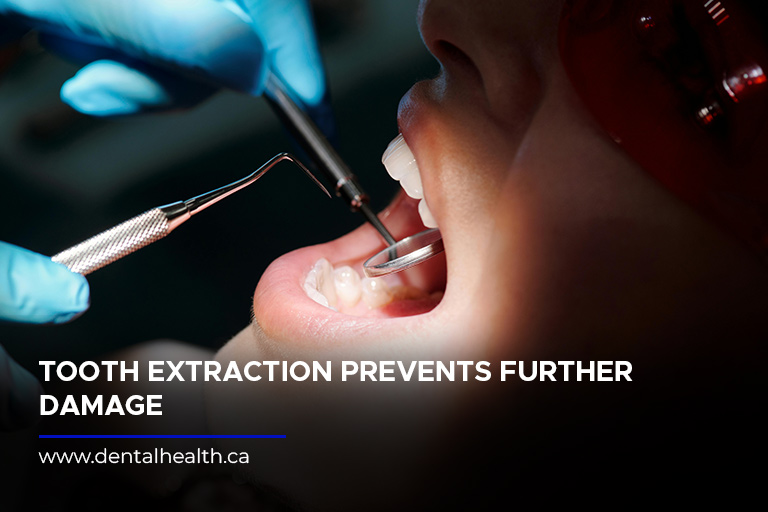Tooth abscesses can cause discomfort and affect overall well-being. However, with proper knowledge and care, managing and preventing this condition is possible. Recognizing early signs and understanding the underlying causes can lead to timely treatment and prevent further complications. This article provides a comprehensive guide about tooth abscesses, including their causes, symptoms, prevention, and treatment options. Staying informed ensures dental health remains a priority and confidence in tackling issues.
What is Tooth Abscess?
A tooth abscess is a collection of pus that forms in different parts of the tooth due to bacterial infection. It’s a condition that demands immediate attention, as it can lead to severe pain and, if left untreated, might result in the spread of infection to other parts of the body.
Infected Tooth versus Tooth Abscess
An infected tooth refers to a tooth where bacteria have invaded the inner pulp, causing inflammation and pain. While all tooth abscesses begin as infected teeth, not all infected teeth develop into abscesses. A tooth abscess is a more severe stage where the infection has spread beyond the tooth itself, forming a pocket of pus at the root tip or in the surrounding gum tissue. This causes increased pain, swelling, and potential complications if not treated promptly.
Causes of Tooth Abscess
It’s crucial to acknowledge the primary factors contributing to this condition. The causes are varied, each highlighting the importance of regular dental care and hygiene.
- Poor Oral Hygiene: Neglecting oral hygiene practices like brushing and flossing can lead to plaque accumulation, containing harmful bacteria, causing tooth decay, infection, and potentially abscesses, ultimately affecting the innermost part of the tooth.
- Untreated Tooth Decay: Tooth decay can cause cavities, leading to nerve tissue pulp chamber infection, causing pus-filled abscesses. Early treatment is crucial to prevent advanced infection.
- Gum Disease: Periodontal disease, a condition affecting gums and teeth, creates pockets containing bacteria, leading to abscesses and potential tooth loss if untreated.
- Trauma to the Tooth: Tooth trauma, such as cracks or chips, weakens tooth defense against bacteria, increasing infection vulnerability and forming abscesses. Post-trauma dental care is crucial to prevent infection and abscess development.
Signs and Symptoms of Tooth Abscess

Recognizing the signs and symptoms of a tooth abscess is critical for seeking timely dental care. Here are some common indicators:
- Severe, Persistent Toothache: Severe toothache, often indicative of tooth abscess, indicates deep-rooted issues, disrupting daily activities and sleep. It calls for immediate dental evaluation and treatment.
- Sensitivity to Temperature: Tooth abscess patients often experience severe pain and sensitivity to temperature changes, indicating the infection has penetrated the tooth’s nerve, affecting its integrity.
- Swelling in the Face or Cheek: Swelling of the face or cheek indicates an infection spreading beyond the tooth, affecting surrounding tissues and requiring urgent dental attention due to its painful and noticeable appearance.
- Fever: Fever in a tooth abscess is a systemic response indicating the body’s active fight against infection, requiring immediate medical intervention and spreading beyond the local site.
- Swollen Lymph Nodes: Swollen lymph nodes under the jaw or neck indicate an infection’s immune response, requiring prompt treatment as they become palpable and tender, filtering out bacteria and toxins.
- Bad Breath or Unpleasant Taste: Bad breath, often persistent, is a sign of an underlying infection releasing harmful bacteria, necessitating immediate dental care to restore oral health.
Prevention
Preventing a tooth abscess begins with understanding and implementing good dental hygiene practices. Here are some effective strategies:
- Regular Dental Check-ups: Regular dental visits every six months are essential for maintaining oral health, as they allow for professional cleaning, early detection of issues like cavities, gum disease, or oral cancer, leading to more effective treatments and cost savings.
- Proper Brushing and Flossing: Daily brushing and flossing are crucial for maintaining good oral hygiene, as they remove food particles and plaque from teeth surfaces and food stuck between teeth and under the gumline, preventing plaque build-up and gum disease.
- Limit Sugary Foods and Drinks: Sugary foods and beverages contribute to tooth decay by forming acid with mouth bacteria, damaging teeth enamel. Reducing sugar intake can lower cavities risk and improve dental health, while healthier snacks and drinks can significantly reduce dental issues.
- Use Fluoride Toothpaste: Fluoride, a crucial mineral in dental health, strengthens tooth enamel, resists decay, and promotes a healthy smile by remineralizing erosions, preventing oral bacteria growth, and preventing tooth decay.
- Wear a Mouthguard: Wearing a mouthguard is a crucial preventative measure for sports and recreational activities, as it cushions blows, prevents broken teeth, lip and gum injuries, and concussions, and is an effective tool for maintaining oral health.
Treatment Options for Tooth Abscess

Treatment for a tooth abscess focuses on eliminating the infection and preventing further complications. Here are some common approaches:
- Saltwater Rinse: A saltwater rinse stands as a straightforward and efficacious method to momentarily alleviate pain and inflammation resulting from a tooth abscess. The inherent antiseptic qualities of salt aid in extracting infection and fostering healing, making it an accessible home remedy for tooth abscess.
- Antibiotics: Antibiotics are prescribed to treat tooth abscesses causing infections that spread beyond the immediate area, targeting the causing bacteria and preventing further spread, often in conjunction with other treatments.
- Drainage: Drainage is a dental procedure where a dentist incisions into an abscessed tooth to release pus, alleviate pain, and reduce infection, but may require additional treatments.
- Root Canal Treatment: Root canal treatment is a vital dental procedure for treating an infected pulp in an abscessed tooth, involving pulp removal, cleaning, filling, sealing, and preserving the tooth’s structure and function.
- Tooth Extraction: Tooth extraction is a vital procedure for severe tooth damage or infection, and patients may consider dental implants post-extraction to prevent tooth shifting and ensure proper replacement.
- Dental Implants: Dental implants are surgically implanted into the jawbone to replace lost teeth, providing a stable, long-term solution that restores function and appearance.
Understanding tooth abscesses is crucial for maintaining oral health and preventing minor issues from escalating into major ones. Recognizing the dangers of tooth abscesses is essential. Proper care and attention can prevent or treat most dental issues, including abscesses, ensuring optimal dental health and avoiding complications.
If you’re experiencing symptoms of a tooth abscess or have concerns about your dental health, don’t hesitate to reach out to Kingsway Family Dentistry. With a commitment to providing quality care, the team is ready to assist you with your dental needs. Contact us at (905) 563-4001 or visit our dentist in Beamsville for more. Your dental health is our priority, and we’re here to support you every step of the way.

